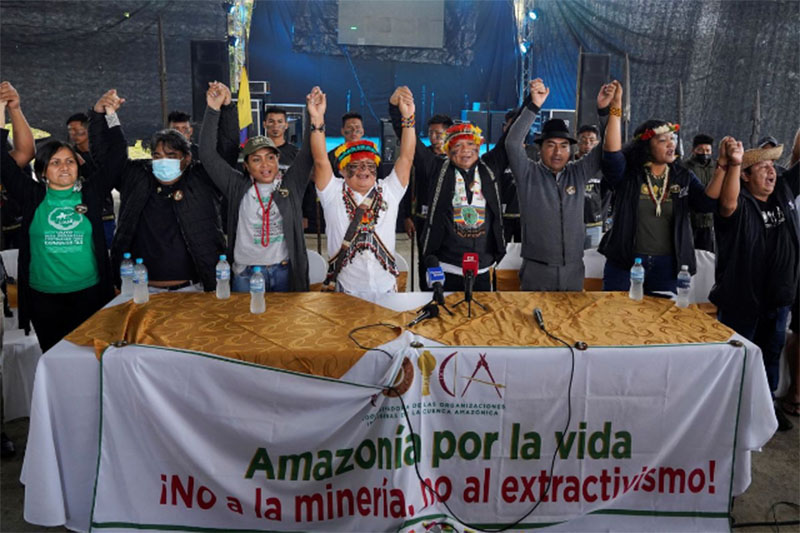PUYO, Ecuador, (Reuters) – Indigenous leaders from nine countries in the Amazon basin met in Ecuador yesterday and demanded South America governments halt extractive industries which damage the rainforest, urging them to respect agreements and legal rulings recognizing communities’ rights over territories.
Governments in the region are failing to live up to their promises to protect indigenous groups, the leaders representing 500 communities – including from Ecuador, Colombia and Brazil – said, adding they feel disrespect when they are not consulted over the exploitation of oil and mining projects in their territories.
“We are demanding humanity support us in our fight for life, for water, for the mountains, for our identity,” Jose Gregorio Diaz Mirabal, of the Coordinator of Indigenous Organizations of the Amazon River Basin (COICA), said.
During meetings in Ecuador’s Puyo, a city towards the east of the country, participants performed rituals with sacred plants. Diaz Mirabal called on governments to honor laws and countries’ constitutions regarding extractive projects.
Indigenous communities in the Amazon basin face problems, including oil spills, deforestation, and pollution of rivers by both legal and illegal mining, all of which negatively affects people and wildlife, the leaders added.
Home to jaguars, pink river dolphins, anacondas and myriad other species, the Amazon – which in some parts has been barely touched by developers – is considered by researchers to be key to curbing climate change.
In Ecuador, indigenous communities’ fight against extractive industries has gained strength after the country’s Constitutional Court suspended environmental permits for a mining project and upheld communities’ right to prior consent regarding development of projects that affect their way of life or are located in their territories.
However Marlon Vargas, president of the Ecuadorian indigenous organization Confeniae, warned the rulings will not help without action from the government, which views growing extractive industries as a means of financing the ailing economy.
“If we don’t stop (extractive expansion), practically the entire Amazon basin will be a desert,” Vargas told Reuters.






